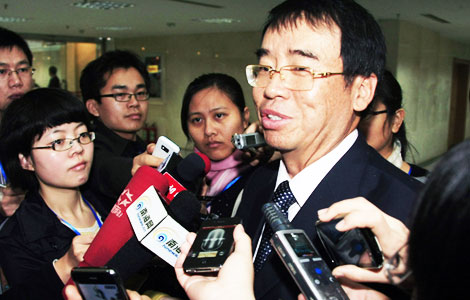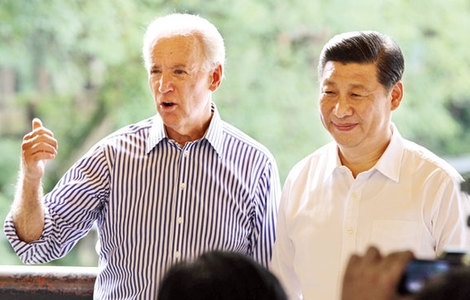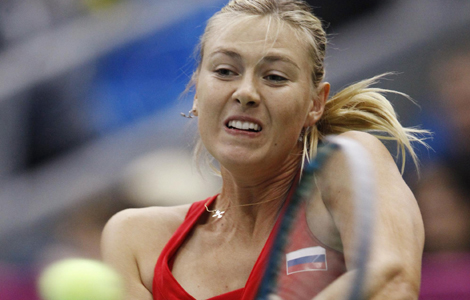Classes held undercover to beat study ban
Updated: 2012-02-10 08:16
By Cheng Yingqi and Liu Ce (China Daily)
|
|||||||||||
SHENYANG/BEIJING - The new semester for most secondary schools has not begun yet, but lessons have already started in secret in some classrooms.
Four high schools in Shenzhen cut short the winter vacation for third-year students, the Guangzhou Daily reported. However, they were sent home again after it was found out by the local educational authority.
A school in Kaifeng, Henan province, started their semester for all students early on Feb 4. It too was caught and punished.
And on Feb 1, Yutian Middle School in Shenyang, Liaoning province, transported more than 400 students to the city of Anshan, 120 kilometers away, to escape inspection by the local education authority.
That didn't work either and the school principal was dismissed this week.
Schools are banned from setting study time during holidays under an instruction by the Ministry of Education published in 2006, so local education authorities check constantly and punish those giving extra classes on weekends or during vacations.
The Yutian students were sent back home to wait a further two weeks for the new semester to start, but some parents were not so pleased at the outcome.
"Now I have to find other vacation classes for my daughter," said a mother surnamed Li, whose daughter is in her third year at the Yutian school.
"If other children are taking extra classes, my daughter will lag behind them."
However, Li admitted to having mixed feelings about the extra lessons.
"The lessons organized by the school cost less and can help my daughter get better marks, but I worry about the food and living conditions in another city far from home," she said.
Wang Jinghai, another parent, agrees with Li.
"The city education authority banned vacation lessons in 2010, but teachers kept telling parents to keep the children studying long hours during vacation. So I now have to pay 1,520 yuan ($241) a month for private English and mathematics classes for my son, which started on Jan 30," Wang said. Wang's son is in the first year at Nanchang middle school in Shenyang.
One private-tutoring agency is Feiyue Education, which provides holiday classes for middle school and college students.
"The winter class for high school seniors is the most popular, with 300 to 400 in one class each paying 60 yuan per lesson," said a staff member at the Shenyang office of Feiyue Education, who did not want to be named.
Hao Xiaoming's son is in his first year at high school in Shenyang, and attends a weekend English class that costs 10,000 yuan for a semester.
"The holiday classes seem very clandestine," Hao said. "Some classes are held secretly in residential areas and do not allow parents to enter. They've installed security doors and windows. There's no guarantee of safety in case of fire."
Liu Yan, professor of Anshan Normal University, said the Yutian school was put under pressure to violate the government regulation.
"The Yutian middle school is a private school not covered by government funding, and it would not survive if it didn't achieve higher college enrollment rates than other schools," Liu said.
"As a result, we see the vacation lessons as an extreme measure in pursuit of high exam grades ."
However, the time spent on classes does not necessarily result in better exam results, said Liu Changming, principal of the Beijing No 4 High School.
"High grades come from students' better understanding of the knowledge, and are not down to how many times a teacher repeats something in class. The students should be given enough time to digest the knowledge they learn at school."
Liu said his school had never given extra vacation classes.
"We certainly can work on improving our efficiency in class, instead of extending the teaching time," Liu added.
Jiang Chunyang, a researcher at the education college of Shenyang Normal University, blamed the teaching evaluation system. Jiang suggested that schools evaluate teachers' performance based on the quality of their lessons instead of students' scores, and to take other factors, such as students' social activities, into account.
Hot Topics
Kim Jong-il, Mengniu, train crash probe, Vaclav Havel, New Year, coast guard death, Internet security, Mekong River, Strait of Hormuz, economic work conference
Editor's Picks

|

|

|

|

|

|







